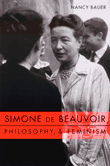No surprises to my readers, I am thrilled with Judge John E. Jones III ruling that teaching Intelligent Design is unconstitutional.
Judge Jones concluded that intelligent design is not science, and that in order to claim that it is, its proponents admitted that they must change the very definition of science to include supernatural explanations. He said that teaching intelligent design as science in public school violates the First Amendment of the Constitution, which prohibits public officials from using their positions to impose or establish a particular religion.
"To be sure, Darwin's theory of evolution is imperfect," Judge Jones wrote. "However, the fact that a scientific theory cannot yet render an explanation on every point should not be used as a pretext to thrust an untestable alternative hypothesis grounded in religion into the science classroom or to misrepresent well-established scientific propositions."
I have blogged here countless times about what I find problematic about Intelligent Desgin. For perhaps my most comprehensive post see "
Why Do Smart People Fall into these Traps: On Intelligent Design."
Hence, I am not going to rehearse the arguments that I have already made about why I.D. should
not be taught in science curriculum.
I am, however, interested in what Andrew J. Coulson, the director of the Center for Educational Freedom at the libertarian Cato Institute, has to say:
"A federal judge has ruled 'intelligent design' cannot be mentioned in biology classes in a Pennsylvania public school district," according to the Associated Press. "The Dover Area School Board violated the Constitution when it ordered that its biology curriculum must include 'intelligent design,' the notion that life on Earth was produced by an unidentified intelligent cause, U.S. District Judge John E. Jones III ruled Tuesday. The school board policy, adopted in October 2004, was believed to have been the first of its kind in the nation."
In a statement released today by the Cato Institute, Andrew J. Coulson, Cato's director of the Center for Educational Freedom, and Neal McCluskey, a Cato education policy analyst, write: "Today's intelligent design ruling by the U.S. District Court in Harrisburg will be perceived as a victory for supporters of evolutionary theory and a defeat for I.D. advocates and creationists. Such perceptions are shortsighted. The Pennsylvania ruling will do nothing to end the battle over the teaching of human origins that has plagued public schools since the Scopes trial of 1925. It, and all the other cultural and religious 'school wars' that divide our nation, will rage on unless we do something about their root cause: our one-size-fits-all government school system.
"As long as every taxpayer is compelled to fund a single official education system, conflicts over its curricula and methods will persist. But there is an alternative: provide tax relief and scholarships that will put independent schooling within reach of every family in America. By allowing parents to obtain the sort of education they value for their own children, without obliging them to foist it on their neighbors, we can eliminate the root cause of the problem -- and bring peace across the entire education front of our nation's culture war."
In
"Why Fight Over Intelligent Design?," Coulson writes, "This manufactured conflict serves no public good. After all, does it really matter if some Americans believe intelligent design is a valid scientific theory while others see it as a Lamb of God in sheep's clothing? Surely not. While there are certainly issues on which consensus is key -- respect for the rule of law and the rights of fellow citizens, tolerance of differing viewpoints, etc. -- the origin of species is not one of them.
"The sad truth is that state-run schooling has created a multitude of similarly pointless battles. Nothing is gained, for instance, by compelling conformity on school prayer, random drug testing, the set of religious holidays that are worth observing, or the most appropriate forms of sex education. Not only are these conflicts unnecessary, they are socially corrosive. Every time we fight over the official government curriculum, it breeds more resentment and animosity within our communities. ... Fortunately, there is a way to end the cycle of educational violence: parental choice. Why not reorganize our schools so that parents can easily get the sort of education they value for their own children without having to force it on their neighbors?"
I find this tactic to be a rather insidious way for the "libertarian" think tank, which should be interested in preserving the Constitution and committed to rational thinking, to flame the fires of the cultural wars. I have been nothing but disappointed with the Cato Institute since I started following its positions and stances. I have rarely found them take a position that seems consistent with what I think (or, perhaps, naively thought) libertarian ideals are.
When I first entered the halls of the Cato Institute, I was pleased to see folks like J.S. Mill and Mary Wollstonecraft enshrined in a frieze. Being someone who knows a thing or two about both of these thinkers, I anticipated they would arrive at different conclusions than they often do on social issues. I expected the Cato Institute to be much more socially liberal.
Instead, I discover that their best minds identify the causes of the cultural war over intelligent design thusly:
We're fighting because the institution of public schooling forces us to, by permitting only one government-sanctioned explanation of human origins. The only way for one side to have its views reflected in the official curriculum is at the expense of the other side.
Amazing how rhetoric and sly manipulation of the facts gives the appearance of a reasonable argument. Curriculum that equips students with the ability to think well about the world and that allows them to participate in a pluralistic democracy is turned into "government-sanctioned" views. Moreover, this statement suggest that there are two legitimate sides to the issue of whether or not to teach I.D. in science curriculum.
What is the Cato solution? Divest the federal government from having any role in designing or upholding specific curriculum in public schools, turn full control of the curriculum over to the parents.
I am not sure what the Cato Insitute counts as a "public good." I imagine very few things are. But, it makes me sick, yes, utterly sick, to know that they think we should make education a private, market-driven choice. What sort of hope does a country have if the majority of the citizens have a sub-standard education? You create a permanent underclass, a huge chasm between the haves and have nots, and ensure generations upon generations of folks to live in poverty.
I am sure their analysts have some seemingly reasonable technocratic way to solve the unequal distribution of the public good of educating your populace. I can see the policy plan: make schools compete with each other, give parents vouchers that allow them to choose which school little Johnny can go to, give full control of curriculum to the PTA blah, blah, blah.
Or, perhaps they don't want to solve this problem of education. Afterall, I have heard more times than I care to remember that all individuals are best suited to make choices for themselves. This sort of rhetoric--yes, it is--makes it sound like Cato is the champion of the little people, protecting them from the fascism of any elite who thinks he or she knows better. Fine, fine.
But, how on earth to you expect anyone to make good decisions if you deny them a real education?, which is what would happen if you turn curriculum over completely to parents. Many parents, who themselves received a sub-standard education, will put their children in schools that will continue to keep them ignorant, poorly prepared, and with little hope for economic advancement.
Schools are not for-profit businesses, nor should they be.
Is nothing sacred to these folks?









